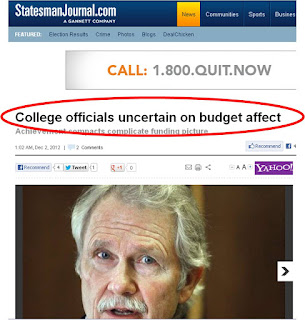Students tell me that I require a lot more writing in my classes compared to the average faculty. And, even worse, that I actually read them all too, which apparently impresses them. (Such student feedback doesn't then speak highly of my profession, does it!)
It is true; I read them all. Especially when there are poems buried within them--
a rare event, of course. Often, students write in ways that tell me how much the readings and concepts made them reflect on their own lives and how they begin to see the world in new ways.
Thanks to such close readings, and reading between the lines also, I think I am able to connect with students that much more.
With one student, for instance, I asked her about her experience in Spain, because there was a passing reference to that in one essay. Another student had written about how the readings made her think more about the future as a mother that she was. A few days ago, I asked about her child's age. She sported a smilingly quizzical expression on her face and asked "which one?"
Now, I was the one with the raised eyebrows.
"They are four, six, and two" she added with a grin.
"Three children? Wow!" She didn't even look like a mother of one, and she had three kids!
She smiled. Two other female students sitting close by also chuckled.
Every student in my classes is a real person, with their own lives. And to be able to treat them as real people and interact with them and do my part to make their lives a tad better is a privilege. The human that I am, well, I fall short sometimes. Education is not merely about the professor yakking a few things in the classroom, and students passing or failing the tests. But then, these are old and traditional ideas for which fewer and fewer people--even faculty colleagues, let alone students--have any patience anymore.
Anyway, there I was reading the last of the assignments from students. No poems anywhere. But, the concluding lines of one assignment, from a "non-traditional" student, is no dull prose:
What a real shame it is, as a born and bred American citizen I had to have my eyes opened by a person who was not born in the United States, who immigrated to my country and chose to become a citizen and cared to learn more about his adopted country than I did about my birth country.
Thus ends another term with at least a few students, like this one, convinced that it was all worth it. If a few students are convinced, then I am more than ready to call it a grand success and will gladly
continue to tilt at windmills :)

